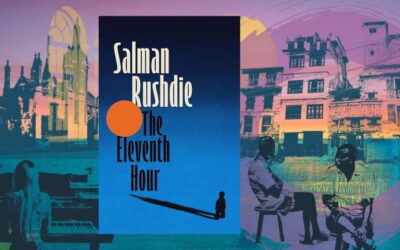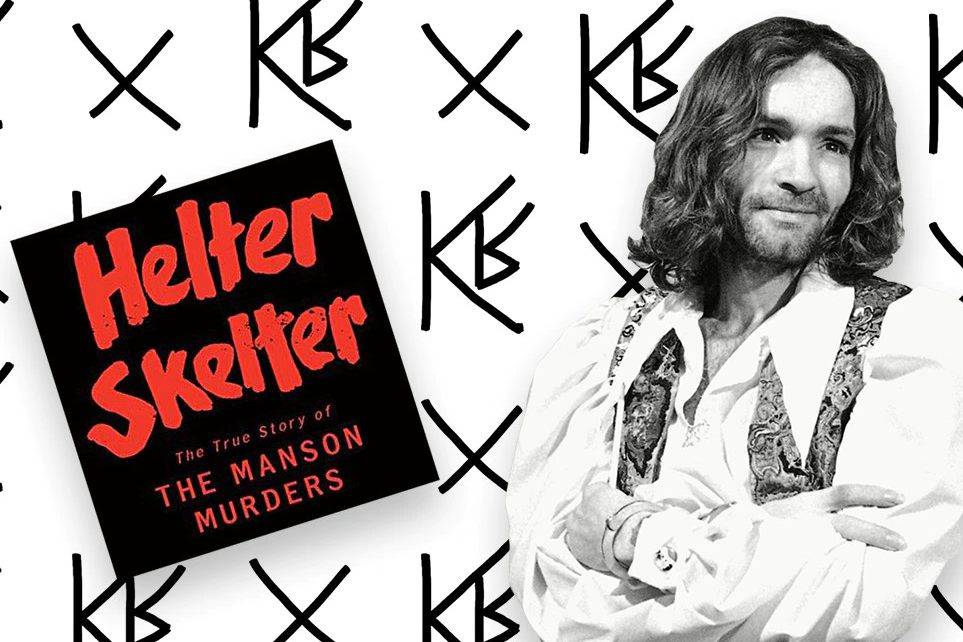13 Best African Books to Read
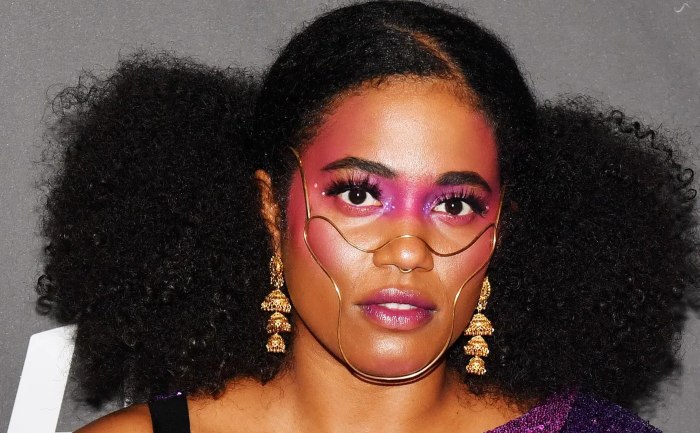 best african books new
best african books newFeaturing the best fiction from all over the continent of Africa, here is Quizlit’s 13 Best African Books
This post may contain affiliate links that earn us a commission at no extra cost to you.
13 Best African Books to Read
Homegoing by Yaa Gyasi (Ghana)
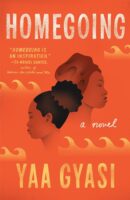
Spanning three continents and eight generations, Yaa Gyasi’s critically acclaimed, debut novel Homegoing begins with two Ghanaian half sisters in the 18th century who lead parallel, yet divergent lives: one stays in Ghana and becomes a wealthy slave trader’s wife; one is sold into slavery and sent to America.
The novel follows the lives of their descendants—from Ghana’s beaches to the plantations of Mississippi, the American Civil War to Jazz Age Harlem—offering an essential examination of power and privilege, memory and legacy.
Waiting for the Barbarians by J.M Coetzee (South Africa)
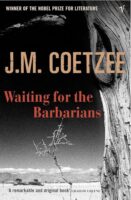
An old magistrate is serving out his last days amongst the soldiers in a frontier fort of a nameless empire. One day a visiting soldier captures some hostile tribes people and brings them to the fort for interrogation. The magistrate enters into a strange relationship with one of them, a twenty year old crippled girl. When he decides to take her back to her tribe, he is accused of having conspired with the barbarians, thus becoming an enemy of the Empire.
A cautionary tale of what happens when the pursuit of conquest becomes the central operating motivation of any empire, the novel is a strong indictment against imperialism.
Freshwater by Akwaeke Emezi (Nigeria)
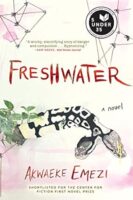
Freshwater tells the story of Ada, an unusual child who is a source of deep concern to her southern Nigerian family. Young Ada is troubled, prone to violent fits. Born “with one foot on the other side,” she begins to develop separate selves within her as she grows into adulthood. And when she travels to America for college, a traumatic event on campus crystallizes the selves into something powerful and potentially dangerous, making Ada fade into the background of her own mind as these alters–now protective, now hedonistic–move into control.
Written with stylistic brilliance and based in the author’s realities, Freshwater dazzles with ferocious energy and serpentine grace.
We Need New Names by NoViolet Bulawayo (Zimabawe)
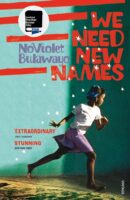
NoViolet Bulawayo’s debut novel We Need New Names depicts social conflict, government abuse, linguistic imposition, displacement and migration through the sceptical voice of ten-year-old Darling, first in a Zimbabwean slum and then in the USA.
Bulawayo’s keen powers of observation and social commentary, and her refreshing sense of humor , deal with themes of loss, identity, struggle, sacrifice, and violence.
Beneath the Lion’s Gaze by Maaza Mengiste (Ethiopia)
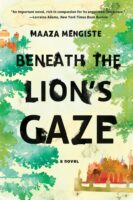
This memorable, heartbreaking story opens in Addis Ababa, Ethiopia, 1974, on the eve of a revolution. Yonas kneels in his mother’s prayer room, pleading to his god for an end to the violence that has wracked his family and country.
Beneath the Lion’s Gaze tells a gripping story of family, of the bonds of love and friendship set in a time and place that has rarely been explored in fiction. It is a story about the lengths human beings will go in pursuit of freedom and the human price of a national revolution. Emotionally gripping, poetic, and indelibly tragic, Beneath The Lion’s Gaze is a transcendent and powerful debut.
The Stranger by Albert Camus (Algeria)
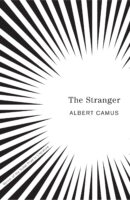
With the excitement of a perfectly executed thriller and the force of a parable, The Stranger is the work of one of the most engaged and intellectually alert writers of the past century.
Albert Camus’s spare, laconic masterpiece about a murder in Algeria is famous for having diagnosed, with an almost scientific clarity, that condition of reckless alienation and spiritual exhaustion that characterized so much of twentieth-century life.
The Havoc of Choice by Wanjiru Koinange (Kenya)
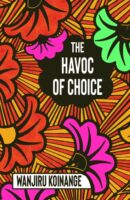
Long-held captive by her father’s shadow of corruption, Kavata has spent her life suffocated by political machinations. When her husband decides to run in the next election, these shadows threaten to consume her home. As her family falls apart so too does the country. In the wake of Kenya‘s post-election turmoil, Kavata and her family must find their way back to each other across a landscape of nationwide confusion, desperation and heart-rending loss.
Koinange explores the long reach and effects of colonisation and corruption within the context of a singular household and the disparate experiences of class and clan they encapsulate.
Palace Walk by Naguib Mahfouz (Egypt)
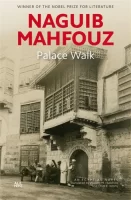
A sweeping and evocative portrait of both a family and a country struggling to move toward independence in a society that has resisted change for centuries. Set against the backdrop of Britain’s occupation of Egypt immediately after World War I, Palace Walk introduces us to the Al Jawad family.
Ahmad, a middle-class shopkeeper runs his household strictly according to the Qur’an while at night he explores the pleasures of Cairo. A tyrant at home, Ahmad forces his gentle, oppressed wife and two daughters to live cloistered lives behind the house’s latticed windows, while his three very different sons live in fear of his harsh will.
A Girl is a Body of Water by Jennifer Nansubuga Makumbi (Uganda)
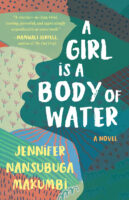
Jennifer Nansubuga Makumbi’s A Girl Is a Body of Water, set in Uganda in the 1970s, features a captivating girl named Kirabo who is coming of age in Uganda and learns what it is to be a woman from her grandmother, aunts, and other women in her community.
This book depicts Ugandan culture, storytelling traditions, rituals, polygamy, tribalism, clans, and rights of inheritance. It’s a fascinating book, full of life, a coming of age story, yes, but so much more. Shortlisted for the James Tate Black Memorial Prize for Fiction 2021.
Makumbi’s novel is a memorable, sweeping monument to the connections that exist between history, tradition, family, friends, and the hope of a new future.
This Blinding Absence of Light by Tahar Ben Jelloun (Morocco)
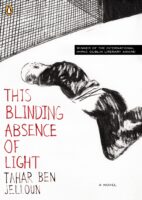
Tahar Ben Jelloun’s award winning novel, This Blinding Absence of Light, is a grim tale of torture and deprivation that is still a joy to read.
Based on a true story, Tahar Ben Jelloun traces the experiences of Salim who, in 1971, took part in a failed coup attempt to oust King Hassan II of Morocco. With sixty others Salim was incarcerated in a secret prison complex in the Moroccan desert: he was to remain there for nearly twenty years.
A Man of the People by Chinua Achebe (Nigeria)
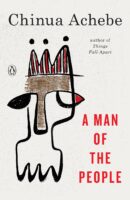
As Minister for Culture, the Honourable M. A. Nanga is ‘a man of the people’, as cynical as he is charming, and a roguish opportunist. At first, the contrast between Nanga and Odili, a former pupil who is visiting the ministry, appears huge. But in the ‘eat-and-let-eat’ atmosphere, Odili’s idealism soon collides with his lusts – and the two men’s personal and political tauntings threaten to send their country into chaos.
Published, prophetically, just days before Nigeria’s first attempted coup in 1966, A Man of the People is an essential part of his body of work dealing with modern African history.
The Promise by Damon Galgut (South Africa)
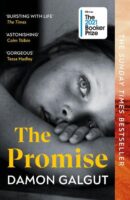
Haunted by an unmet promise, the Swart family loses touch after the death of their matriarch. Adrift, the lives of the three siblings move separately through the uncharted waters of South Africa; Anton, the golden boy who bitterly resents his life’s unfulfilled potential; Astrid, whose beauty is her power; and the youngest, Amor, whose life is shaped by a nebulous feeling of guilt.
Reunited by four funerals over three decades, the dwindling family reflects the atmosphere of its country—an atmosphere of resentment, renewal, and, ultimately, hope. The Promise is an epic drama that unfurls against the unrelenting march of national history, written in gorgeous prose by Damon Galgut
Nervous Conditions by Tsitsi Dangarembga (Zimbabwe)
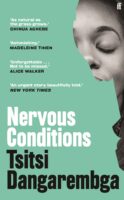
Nervous Conditions, written in 1989, is a semi-autobiographical coming of age story about a young woman in modern Africa. The story takes place in Rhodesia in the late 1960s and early 1970s. The story centers around Tambu and Nyasha, female cousins who, until their early teens, lead very different lives.
Tambu was raised on her family’s farm in Umtali where she was responsible for household chores, gardening, and caring for her younger siblings. Tambu’s dreams of getting an education are only fulfilled when her brother dies and she becomes next in line for school since she has no other brothers.
You can also test you knowledge of African Literature with our fun African Book Quiz
For further reading check out the Book Recommendations of Blessing Musariri , the Zimbabwean author.

